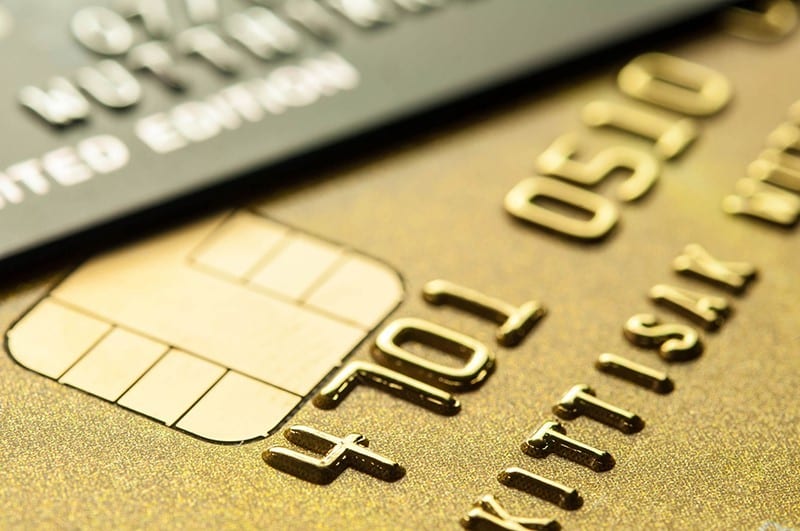
With the struggling economy, bank fraud is becoming a more common and easy crime to commit. Bad economic times produce financial desperation, and financial desperation can result in terrible life choices.
In 2013, 60 percent of banking organizations were exposed to actual or attempted payment fraud. The most common type of fraud attack comes first from checks, which is followed by debit and credit card fraud.
But just because a lot of bank fraud is occurring doesn’t mean the charge should not be taken seriously. A bank fraud charge is a matter that can have both federal and state penalties with hefty fines. Convictions generally result in lengthy prison sentences.
If you or someone you care for suddenly find themselves either under investigation or charged with bank fraud, it is imperative that you seek representation from an experienced bank fraud attorney who can help you fight those charges.
What is Bank Fraud?
Federal law gives a general definition of bank fraud that says it covers a scheme intended to “defraud a financial institution,” or uses deception to get money, other property, or something of value from a financial institution or from their account holders.
Federal law also defines a “financial institution” as a bank or credit union that is federally insured, such as Federal Reserve banks, mortgage lending businesses, the Federal Deposit Insurance Corporation (FDIC), and other institutions where parties can deposit money and other assets.
Under federal law, bank fraud could include:
Forging or using counterfeit financial documents
Embezzlement
Falsifying information on financial applications
Getting misleading or fake appraisals
Inflating purchase or lending prices to hide down payments
State laws may not necessarily be the same as federal law. In Texas, many bank fraud laws fall under forgery laws, which could include:
Signing another person’s name on a check
Altering a check’s amount without authorization
Cashing a forged check
Making a fake deed or other real estate document
Altering a financial document
Using a forged tool or document to get or transfer money or property
Federal Bank Fraud Statute
Under Section 1344 of Title 18, United States Code, the Government must prove three essential elements to establish bank fraud: 1) a knowingly executing or attempting to execute a scheme to defraud; 2) the scheme to defraud was material; and 3) the financial institution was insured by the Federal Deposit Insurance Corporation. As of June 2014, the U.S. Supreme Court ruled that the Government has no duty to establish intent to defraud.
Bank fraud is considered by the Government to be one of its most serious criminal offenses; more serious than armed bank robbery, in fact. An individual who writes a single “bad check” on a bank can receive up to 30 years in prison while an individual who robs a bank with an AK-47 can receive up to 20 years in prison.
According to the American Bankers Association’s 2013 Deposit Account Fraud Survey, fraud against bank accounts in 2012 cost the banking industry $1,744 billion in losses. More than half (54%) of those losses were attributed debit card fraud while 37% of the losses were attributed to check fraud. The remaining losses (9%) were attributed to online banking and electronic transactions.
On the upside, the fraud prevention measures employed by banks thwarted approximately $13 billion in fraudulent transactions in 2012.
Embedded in these figures is the reality that most Americans do not trust—and, in fact, seriously dislike—the banking industry. Americans, as a whole, generally believe that banks were responsible for the near total collapse of the national economy in 2008. There has been sufficient credible information put in the public marketplace to, at a minimum, justify the widely held belief that the banking and mortgage industries engaged in blatant intentional fraud, so much so that it brought the world economy to its knees.
For example, in 2014, New York U.S. District Court Judge Jed S. Rakoff wrote in THE NEW YORK REVIEW OF BOOKS that the Financial Crisis Inquiry Commission—one of several governmental entities asked to examine the “financial meltdown”—used variants of the word “fraud” no fewer than 157 times in describing what led to the meltdown. Judge Rakoff noted that the Inquiry Commission’s final report concluded there was a “systemic breakdown” in both accountability and ethical behavior.

While big banks like JP Morgan Chase, Bank of America and Wells Fargo have been civilly fined billions of dollars—most of which are tax deductible—, not one of their executives has been indicted, much less prosecuted, for fraud (or any other type of criminal wrongdoing) associated with the financial meltdown.
This should not be surprising. Multiple sources—most notably the Transactional Records Access Clearinghouse at Syracuse University (TRAC)—have reported that bank fraud prosecutions under the Obama administration (as much as 39% according to some reports) are dramatically lower than in previous years.
For example, in 2011 alone, the federal government undertook less than 1400 prosecutions for financial institution fraud. TRAC told the HUFFINGTON POST that the decrease in such fraud prosecutions did not necessarily reflect a decrease in financial institution fraud itself. The POST pointed out that while the government had prosecuted a number of small financial institutions in 2011, “critics say it has been remiss in investigating possible improprieties among the nation’s largest banks in the years leading up to the mortgage crisis.”
Texas Bank Fraud
In Texas, if your bank fraud charge falls under the umbrella of forgery, you can be charged with a misdemeanor or felony depending on what was involved and if the victim was an elderly person.
State jail felony. Forgery is a state jail felony in Texas if the item involved was a will, deed, mortgage, check, debit or credit card, contract, or release used as payment of money or to defraud a financial account. A state jail felony is punishable by a fine of up to $10,000 and 18 months to 2 years in prison.
Third degree felony. Forgery is a third degree felony if the item involved was paper money, stocks, bonds, or something issued by a state or national government. A third degree felony is punishable by a fine of up to $10,000 and 2 to 10 years in prison.
Misdemeanor. Forgery is a Class A misdemeanor if the item involved isn’t listed in the two felony charges. Class A misdemeanors are punishable by a fine of up to $4,000 and up to one year in jail.
If you are facing bank fraud charges – state or federal – contact a qualified criminal defense attorney with a proven track record to understand your rights and get the charges reduced or dropped.



